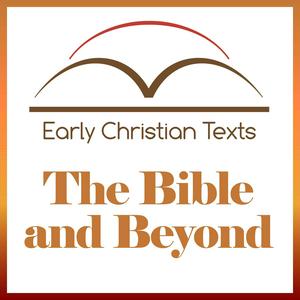An Interview with Dr. Tobias Nicklas
Professor Tobias Nicklas explores the surprising world of Christian Apocrypha — stories and traditions that continued shaping faith far beyond the biblical canon. From the Infancy Gospel of Thomas to the Acts of John and the Acts of Paul and Thecla, these writings raise profound questions about Jesus's humanity and childhood, a suffering God, and the role of women and imagination in early Christianity. Their influence, Nicklas shows, still colors Christian memory and art today.
Professor Tobias Nicklas studied Theology and Mathematics at Universität Regensburg, Germany, and he did his doctorate on the "Jews in the Gospel of John." His German post-doc focused on Christian Apocrypha including the Unknown Gospel on Papyrus Egerton 2, one of the most ancient witnesses of early Christianity. He has been teaching at the Universität Regensburg since 2007. In 2018 he—and colleagues—founded the Centre for Advanced Studies "Beyond Canon" at the same University. Tobias has authored several monographs, including The Canon and Beyond (Tübingen, 2024) and the book we discuss in the podcast, Reading Christian Apocrypha with Janet E. Spittler (Minneapolis, 2025).
A complete transcript is available here: https://earlychristiantexts.com/beyond-the-canon/


